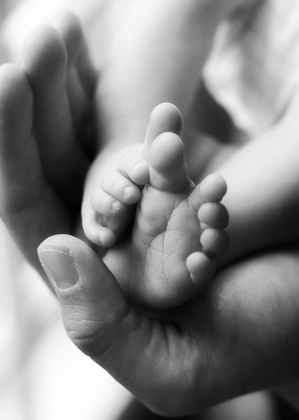Study says toxic chemicals banned from children's pajamas in 1970s still in baby products
A suspected cancer-causing toxin banned from children’s pajamas in the 1970s was found in one-third of 101 baby products recently tested for flame retardants, a new study says.
The study, published this week in Environmental Science and Technology journal, found hazardous and untested flame retardants 80 percent of products tested overall. Eighteen of the products were from Ann Arbor, purchased or collected from parents by the Ecology Center.
Study authors tested the polyurethane foam-containing baby products like nursing pillows, car seats and changing pads for chemical flame retardants.

Photo courtesy of Flickr user surlygirl
Chemicals found in the products have been associated with adverse human health effects like reduced IQ, hormone disruption, impaired child development and increased time to pregnancy.
But industry group the Juvenile Products Manufacturers Association denies some of the study's claims. In a statement released this week, the group says all nursery products sold in the U.S. meet tough federal safety standards.
"The compound that was banned in 1977 for use in sleepwear is tris (2,3-dibromopropyl) phosphate; the relevant materials found in the study released today in the journal of Environmental Science and Technology (TCEP, TCPP, and TDCPP) are chemically related and have names which are similar (like the banned “tris”, all are halogenated organophosphates containing the triisopropyl or “tris” moiety), but are not the banned substance, and in fact, do not contain any bromine at all. This study does not support allegations that the banned retardant “tris” is in use," the association says in its statement.
Of 18 products from Michigan, 15 contained halogenated flame retardant chemicals, according to the study. And eight of the products from contained the flame retardant TDCPP, or chlorinated tris, mostly changing pads and crib wedges.
The Michigan Network for Children’s Environmental Health, which falls under the Ecology Center’s umbrella, purchased or collected from parents 18 items from Michigan used in the study, said Rebecca Meuninck, the environmental health campaign director for the Ecology Center.
How can families avoid the chemicals?
Meuninck suggested purchasing products made of natural materials like cotton, wool, natural rubber or latex rather than polyurethane foam.
And, the Ecology Center runs HealthyStuff.org. The product testing initiative with a user-friendly website and database has captured national attention in its efforts to find and publicize toxic chemicals found in everyday products, like toys, apparel, tools and cars.
How do you feel about the study? Are you inclined to believe the industry or the researchers? Why? Would you change your buying habits based on this study? Take our poll and leave a comment below.
Juliana Keeping covers general assignment and health and the environment for AnnArbor.com. Reach her at julianakeeping@annarbor.com or 734-623-2528. Follow Juliana Keeping on Twitter


Comments
Elaine F. Owsley
Fri, May 20, 2011 : 7:16 p.m.
As long as the buying public chooses unregulated, cheap merchandise made in China (for instance) they stand the chance of dangerous ingredients - be it dog food, baby food, children's clothing or anything else. Safety costs more. It's your choice.
trespass
Fri, May 20, 2011 : 7:13 p.m.
When Juliana says the products were from Ann Arbor, does that mean they were manufactured here or just sold here? Most of this type of product is manufactured in foreign countries, primarily China. How do we regulate foreign manufactured goods?
timjbd
Sat, May 21, 2011 : 1:12 p.m.
Considering the fact that toys, dog food, drywall, etc. coming from China have created so many problems lately, country of manufacture is an obvious detail to include in the story. It's not as though the information is unavailable.
dading dont delete me bro
Fri, May 20, 2011 : 8:17 p.m.
what is manufactured here anymore? seriously. not a whole lot.
Juliana Keeping
Fri, May 20, 2011 : 8:16 p.m.
Purchased here!
timjbd
Fri, May 20, 2011 : 6:07 p.m.
No need to deregulate when you can just make sure there is no one available to investigate. Glorious capitalism.
dading dont delete me bro
Fri, May 20, 2011 : 4:01 p.m.
"made in china" ?